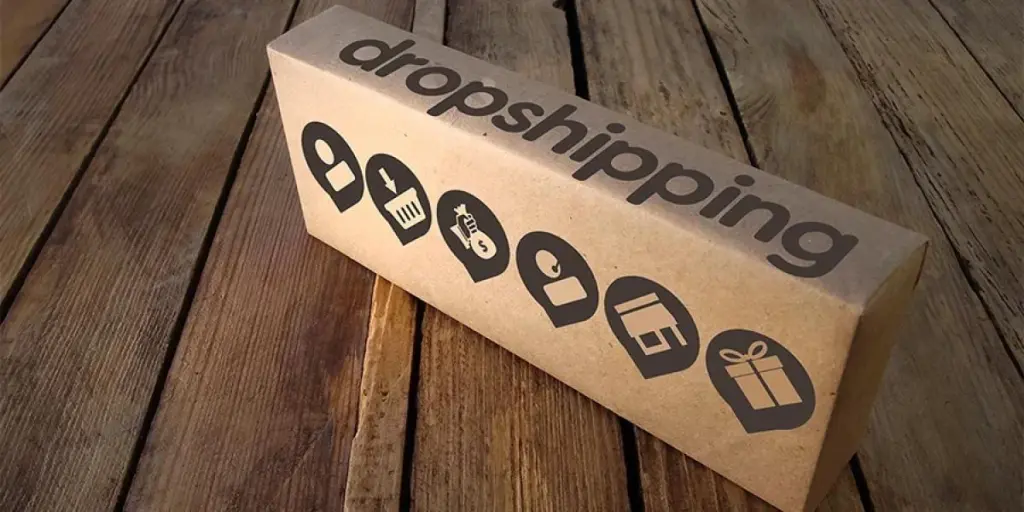The internet has made it possible to connect with people from around the world with just a few clicks. In turn, it’s become not only possible but standard to operate businesses and facilitate trade online.
In this article, we are going to share how to start an online business with no money. We’ll cover everything from e-commerce beginner tips, low-cost e-commerce options and how to seek funding to bring more complex e-commerce operations to life.
Table of Contents
The basic steps to start an e-commerce business
How to start an e-commerce business
Tips on how to start an online business with no money
Where to source products
The basic steps to start an e-commerce business
E-commerce, which is short for “electronic commerce,” is an all-encompassing term to describe a business that is conducted on the internet. This applies to the trade of both goods and services.
There are several types of e-commerce. Aside from breaking the categories down into goods and services, you can also classify them as business-to-business (B2B), business-to-consumer (B2C), or even consumer-to-consumer (C2C).
The e-commerce market is currently booming, which presents plenty of opportunities for aspiring entrepreneurs. Experts predict that the e-commerce market value will rise by 16.1% in 2022, reaching the whopping US $1.06 trillion.
With that forecasted growth in mind, there’s never been a better time to explore the e-commerce space.
If you are starting an e-commerce business on a tight budget, you can start with something simple, such as flipping items on C2C platforms like eBay. People who have an idea for selling products online but don’t have the capital to get started can get strategic to get funded.
E-commerce business benefits
There are several benefits to starting an e-commerce business. For one, it is possible to dive in with little to no business experience. As long as you’re willing to put in the time and do the research, it’s possible to build something substantial.
Starting an online business opens the potential for greater financial freedom, since there is no salary cap. Some e-commerce businesses can be operated remotely, which is another plus.
How to start an e-commerce business
There are a lot of moving parts involved when starting and running an e-commerce business. E-commerce for beginners is complex, but it isn’t complicated.
It is worth noting that starting an online business will look a little different for everybody, so today, we’re going to focus on starting an e-commerce business with no money.
With that said, let’s take a closer look at the process of starting an online business.
1. Research and explore
The first step to opening an e-commerce business is to research and explore to better understand what you’re getting into when starting this sort of endeavor. Study the e-commerce landscape and the specific industry you’re entering. Also, work on getting more clarity on the products that you want to sell and who you want to sell them to.
The internet is a great resource for this. There are thousands of articles, videos, and courses to get into. The blogs and learning centers on Shopify, NerdWallet, and Oberlo are great starting points.
If you don’t know where to start in your specific industry, consider reaching out to other business owners in your network that work in the same industry. While some offer consulting as a paid service, there are plenty of people who are willing to give you some pointers for free.
2. Create an e-commerce action plan
Once you have a better idea of the industry layout, it is time to make a plan. Start your e-commerce business plan by outlining your goals and backtrack from there. Break the goals into milestones and determine how you can reach each of these steps.
Determine what you have to offer, who you are selling to, and how you’ll reach that target audience.
Also, take some time to think of what sort of e-commerce business model you’d like to use. Weigh different options, such as dropshipping and in-house fulfillment. Figure out what makes the most sense in terms of your goals, ideas, and resources.
3. E-commerce funding
You’ve likely heard the quote, “it takes money to make money.” While that is often the case, you don’t need money of your own to get started. A few ways to fund your e-commerce business include getting a loan, applying for grants, or finding investors.
If you’re not familiar, loans can be issued from banks and other lenders, and they need to be paid back with interest. Grants often come from government agencies or other organizations, and they don’t usually need to be paid back. Investors give aspiring small business owners funds for some stake in their company.
The key to all three of these e-commerce funding methods is to have a solid business plan. The different funders want to know that you are capable of using your money to build a successful business.
4. Handle the legal aspects of e-commerce
The next step is to handle the e-commerce legal requirements . You’ll have to register your business, set up your tax information, obtain the proper licensing, and find the appropriate insurance.
This looks very different depending on where you are located. Different countries, territories, and jurisdictions have their own requirements. It will also vary based on what type of e-commerce business you’re running.
Read up on local guidelines and restrictions to find out exactly what you need to do.
5. Find a supplier
Now it is time to find a supplier that is able to fulfill your needs. One of the most popular ways to do this is to browse a B2B marketplace. Depending on the platform you choose, it’s easy to search for specific products and filter the results to suit your needs.
Chovm.com is a great place to find suppliers for your e-commerce business. The platform brings together thousands of verified suppliers. Many suppliers have earned the “Verified Supplier” classification, which means they’ve undergone an advanced authentication and verification process.
6. Build an e-commerce storefront
Once you’ve found a supplier, it is time to build an online storefront. There are a variety of options for building an online store. You could use an established marketplace, or you could build a storefront on your own e-commerce website. Many businesses choose to do both.
There are a variety of online marketplaces available for different types of trade. Chovm.com, for example, is geared towards trade between businesses. On the other hand, Amazon is more suitable for trade between businesses and consumers.
There are also platforms that are geared towards C2C business, like Etsy and eBay. These marketplaces facilitate trade between individuals.
7. Launch e-commerce business
Once you have everything set up, it is time to launch your e-commerce business. Upon your launch, you can deploy your sales and marketing strategies to reach more buyers.
In your e-commerce launch plan, explore different low-cost digital marketing techniques to see what will work for your brand and target market. Since there are several free digital marketing techniques, it’s possible to find the right strategy through trial and error.
Some popular e-commerce marketing methods are social media marketing, email marketing, and search engine optimization (SEO).
Tips on how to start an online business with no money
Let’s take a look at a few tips that will help maximize your success.
Host a pre-sale
Another way to gain some capital to start your small business is to open up a pre-sale so that people can place orders before the business officially launches. You can use the funds from these sales to buy your initial inventory.
With this approach, you don’t have to rely on third-party investors to get started. This approach also allows you to gauge interest from your potential customer base.
Try dropshipping
Dropshipping is a business model that involves outsourcing order fulfillment. Basically, retailers sell the items on their own e-commerce stores, but the supplier manages the inventory and fulfills each other.
This business model requires very little overhead, so it is a great option for those who want to get into e-commerce but are working with a limited budget.
Don’t overstock
Inventory planning is an important part of owning and operating an e-commerce business. One thing to be mindful of, especially in the early days of your business, is the danger of overstocking.
Buying more inventory than you can realistically sell is harmful for a few reasons. Not only do some products expire, but storing them can get expensive. Also, buying excess inventory will tie up capital, which eliminates access to that cash.
Inventory management software is helpful for reducing the risk of overstock and related issues.
Where to source products
Laying the groundwork for your e-commerce business takes quite a bit of hard work, but when you’re fueled by passion, this sort of endeavor is fun and exciting.
Aside from creating and executing a sustainable plan, it is important to partner with reliable suppliers.
Now that you know how to start an online business with no money, visit Chovm.com today to source products for your new e-commerce business.





 বাংলা
বাংলা Nederlands
Nederlands English
English Français
Français Deutsch
Deutsch हिन्दी
हिन्दी Bahasa Indonesia
Bahasa Indonesia Italiano
Italiano 日本語
日本語 한국어
한국어 Bahasa Melayu
Bahasa Melayu മലയാളം
മലയാളം پښتو
پښتو فارسی
فارسی Polski
Polski Português
Português Русский
Русский Español
Español Kiswahili
Kiswahili ไทย
ไทย Türkçe
Türkçe اردو
اردو Tiếng Việt
Tiếng Việt isiXhosa
isiXhosa Zulu
Zulu
Hello there I was wondering if you could please inlighten me a little bit more about your article as I’m interested in starting a e-commerce online store please 🙏 and thank you God Bless you.